“The company, for me, is the main instrument of service to society” / Julián Soler
When we talk about sustainability in our grape juice concentrate production, we refer to an integrated, efficient and innovative management that encompasses environmental, economic and social factors. In our unique must-making process, we promote environmentally friendly agricultural and industrial practices by incorporating methods and technologies that allow us to optimize resources and protect the balance of the ecosystem. And all this happens while generating development opportunities for local communities. This multidimensionality of sustainability has been the cornerstone of the JULIÁN SOLER company since its inception. It was the vision of its founder and it is the essence that will be maintained forever in each of our processes and collaborators.
Through this post we show how we have integrated each of these values into our grape juice concentrate production model, to ensure its continuity and sustainable success over time.
- Sustainable technologies for efficient production
- Efficient irrigation systems
- Liquid waste management
- Strategic alliance with farmers in La Mancha: support and local development
- Protection of native fauna
- Use of pomace
- Vidartis: more than a CSR project
- JULIÁN SOLER: guarantee of sustainability
Sustainable technologies for efficient production
We have outlined a plan to optimize energy use and reduce the carbon footprint of our organic grape juice production process. To this end, we use renewable, clean and alternative energies in each of our operations.
Use of solar energy
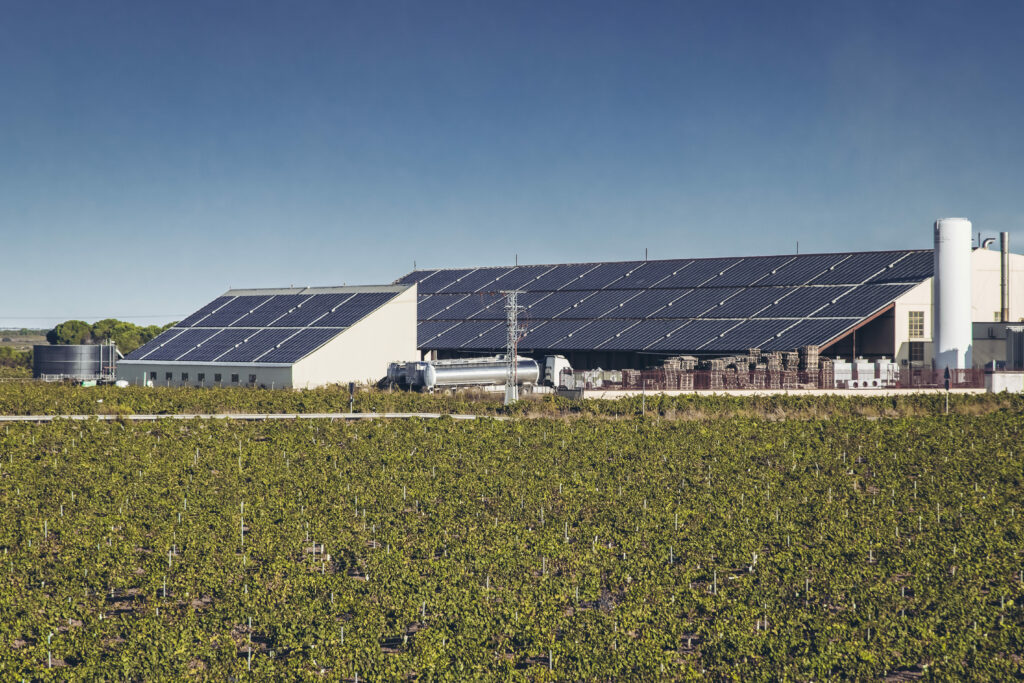
One of the fundamental components of JULIÁN SOLER’s energy sustainability strategy is the use of solar energy. To this end, we have our own photovoltaic system, with 260 solar panels and an extension of 348 m2, to generate an important part of the electricity needed in the processing of concentrated grape juice. In addition, in our aim to reduce energy consumption, we also take into account the eco-efficiency of the equipment we use in our facilities.
Biomass energy production
Another important source of renewable energy used is biomass generated from by-products of local almond processing. Specifically, we use almond shells as natural fuel for the boilers in the grape juice concentration operations. This 100% ecological fuel, with low CO2 emissions, provides us with a high calorific value. The biomass boilers are equipped with devices that filter and control the emission of solid particles into the atmosphere.
- The use of biomass as an energy resource not only allows us to reduce dependence on fossil fuels, it also helps us to support the local economy and to actively participate in the efficient management of agricultural waste, reducing the amount of waste, minimizing environmental impact and boosting the circular economy.
Efficient irrigation systems
As part of our sustainable and innovative approach, we also prioritize the optimization of water use by implementing an automated drip irrigation system in our own vineyards. In addition to allowing us to conserve water resources, it helps us to ensure that the vines overcome physiological stress, to ensure the health of these plants and the superior quality of their grapes.
This drip micro-irrigation method delivers water slowly and directly to the root area of each plant. For this, it has sensors, valves and computerized systems that precisely control both the administration of irrigation water and the injection of nutrients and oxygen to the rhizosphere. The small drippers of the irrigation lines are activated at programmed periods (with pre-set start time, drip time and end time), or according to climatic conditions or crop needs, considering soil moisture or water stress detected by the system.
Liquid waste management
True to our planning for the circular economy, we also reduce water consumption and protect local water resources by recycling vegetable water and treating wastewater. In this way, we sustainably close the production cycle.
Recycling of vegetal water
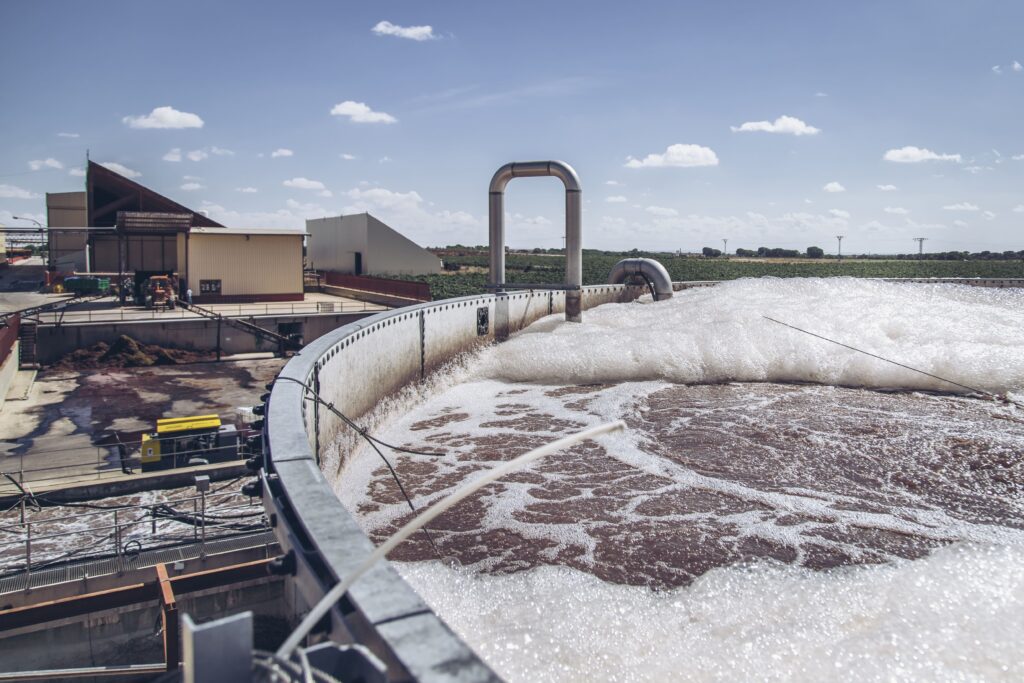
During the grape juice concentration process (evaporation), a considerable amount of vegetable water is extracted. At JULIÁN SOLER we take part of this water and reuse it to irrigate our own vineyards. It is a nutrient-rich water that, when re-injected into the plantations, helps to improve soil fertility. Basically, we take the water from the grapes themselves to nourish the vines again, thus giving back part of its essence.
Water treatment
We have a treatment plant that allows the sanitation of wastewater resulting from the processing of grape must. This treatment plant:
- It uses oxidation, filtration and biological treatment technologies to remove sulfites, pollutants and organic matter, without any risk of toxicity to the environment. Thus it is possible to return clean and treated water to the Valdemembra river.
- It has an advanced central computerized system for the supervision and control of the processes that are part of the water treatment. This allows us to monitor the output parameters and ensure that the treated water complies with environmental regulations before it is discharged.
Strategic alliance with farmers in La Mancha: support and local development
As we expressed at the beginning, sustainable management in JULIÁN SOLER’s operations encompasses multiple dimensions. One of them reflects our ethical and responsible model in the economic and social aspects that make up the agriculture and marketing of grapes in Castilla La Mancha.
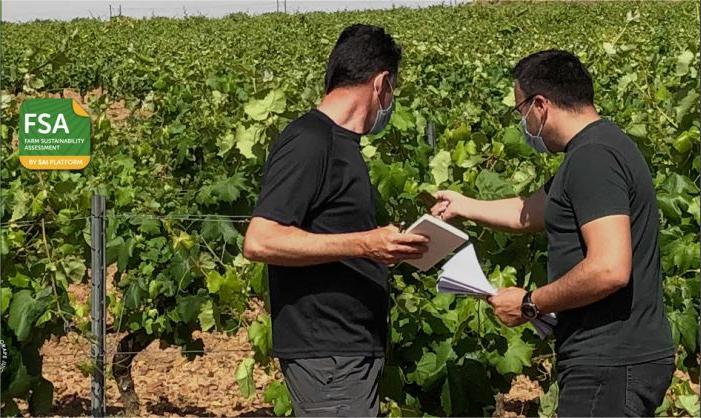
- We work closely with farmers in La Mancha, providing technical advice that encourages the use of sustainable farming methods, such as the adoption of efficient irrigation practices and biological pest control.
- We are strategic partners of the local producer to guarantee the commercialization of native grapes from all over Castilla La Mancha: white grapes, such as the Airén variety, and red grapes, especially the Bobal and Garnacha Tintorera varieties. In addition to harvesting grapes from our vineyards in La Manchuela, we receive the product grown by more than 300 farmers in La Mancha.
- We recognize the work of growers in the cultivation of high quality grapes. We value their harvests in order to ensure the sustainable profitability of farmers and boost the local economy.
Protection of native fauna
We are aware of the importance of preserving biodiversity and the landscape both to maintain the balance of the environment and to ensure the health of the vineyard. Therefore, we protect the ecological niches, mainly through:
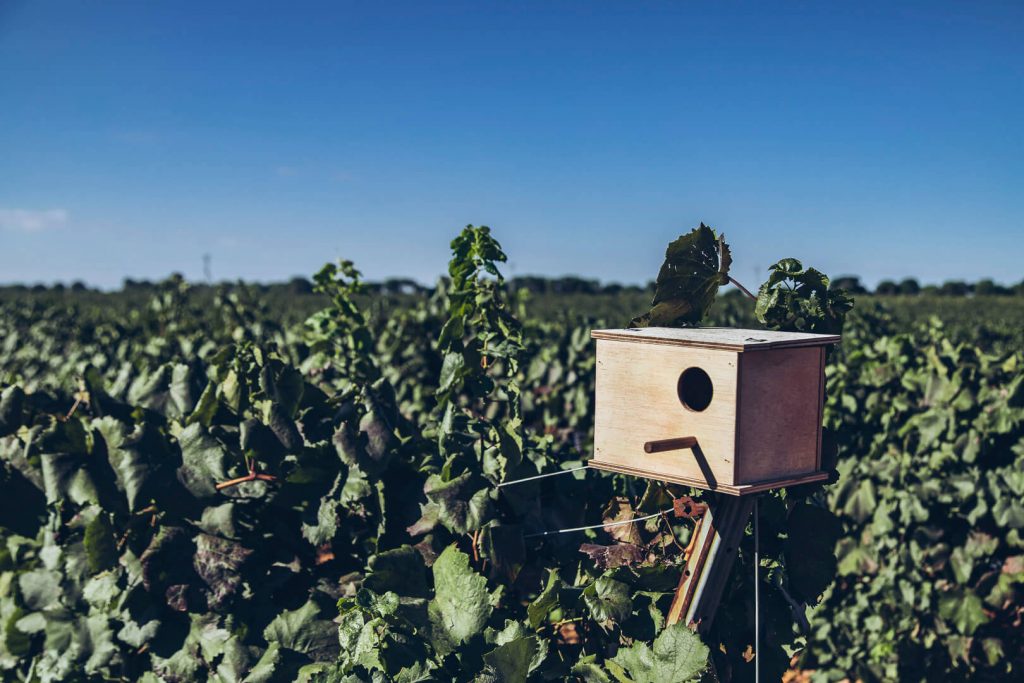
- The installation of nests. The presence of insectivorous birds, owls that feed on rodents, or bats that can feed on more than 600 insects during one night, is key to the biological control of pests in the crop. Consequently, the installation of nest houses throughout our vineyards, in addition to providing a refuge for native fauna, helps biological control in the plantation. We also install nest houses in areas surrounding our factory to provide sparrows with a place to carry out their nesting cycle.
- The protection of burrows and biological corridors contributes to the restoration and conservation of the landscape. It is also key to providing a refuge for flora and predators that are natural enemies of the pest that affects grapevines.
- The conservation of ponds, wetlands and ponds that allow the preservation of microorganisms and amphibians allied in the fight against pests. In addition, they are indispensable for maintaining the ecosystem and can serve as watering places for predatory mammals that keep other animals in check.
Use of pomace
And what happens to the waste or solid by-products generated during grape pressing? Simply put, we use everything from the grapes. In keeping with the essence of JULIÁN SOLER, of contributing value to society, we use grape pomace (remains of pulp, skins, stems and seeds) to manufacture other products.
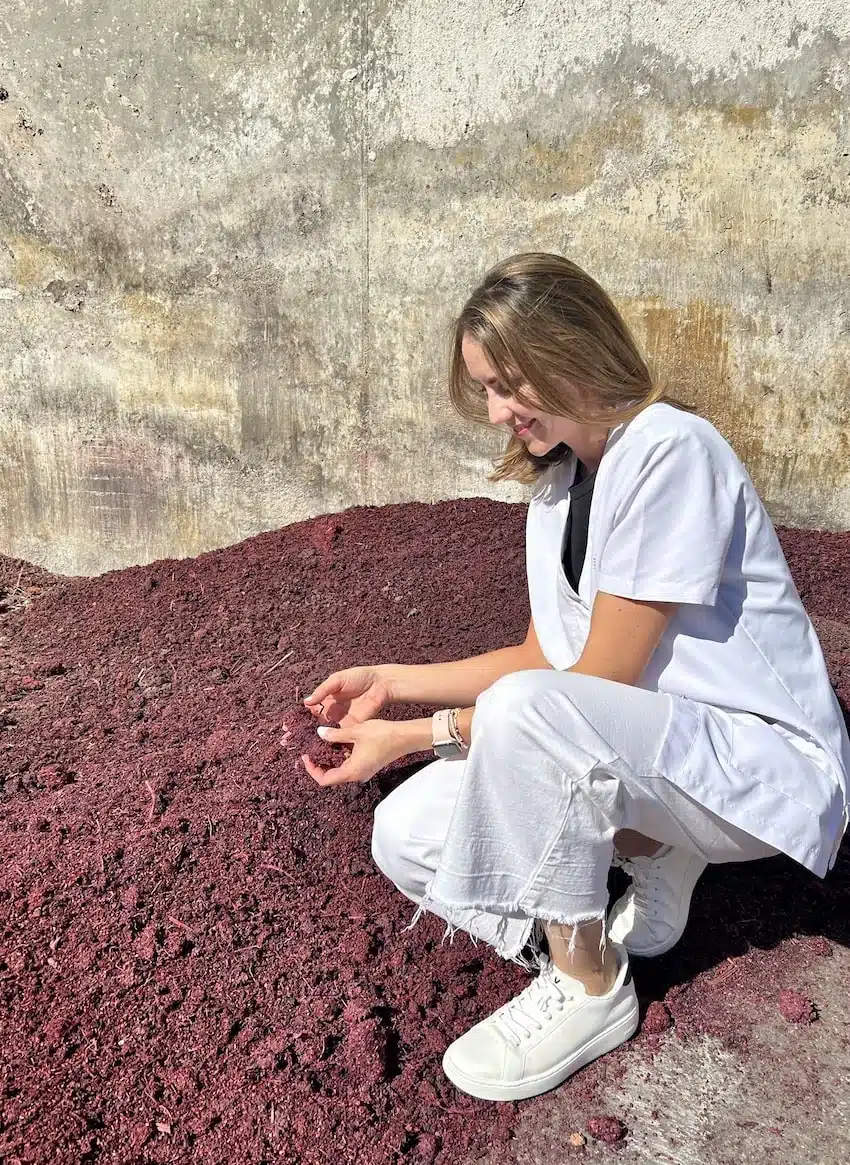
Vidartis: more than a CSR project

Vidartis is our innovative project that fuses agriculture and art, where our must is used as a pigment in different graphic expression techniques. It seeks to merge our La Mancha roots in grape growing with pictorial and graphic art. The pigments we make from concentrated red/white must and grape pomace create a unique scenario of color, textures and fragrances that envelops both the artist who creates the work and the spectator who admires it.
JULIÁN SOLER: guarantee of sustainability
Our unique process allows us to produce a 100% authentic grape juice concentrate, offering maximum guarantees in terms of food safety and quality. We are FSA (Farm Sustainability Assessment) certified, which accredits us as a company committed to sustainable production and environmentally responsible agricultural practices. This certification evaluates our management in various aspects, such as social impact, efficient water use, reduction of greenhouse gas emissions and proper soil management. In this way, we demonstrate that our concentrated grape must is not only of high quality, but also an environmentally friendly product.
At JULIÁN SOLER we have the logistic and technological capacity to deliver concentrated must anywhere in the world, any day of the year. Contact us and request information.
We are your global grape solution provider.
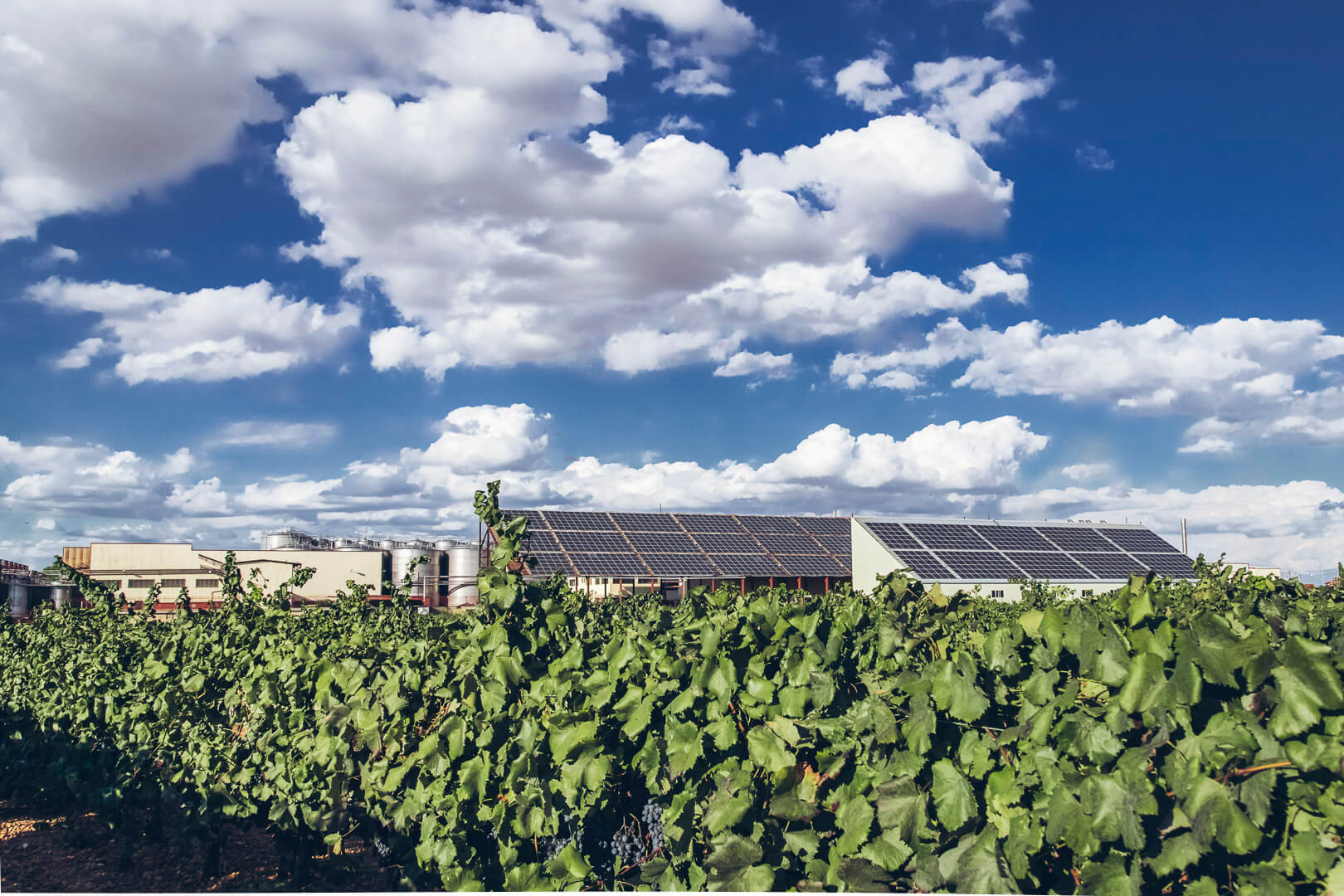
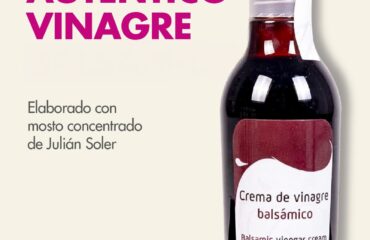

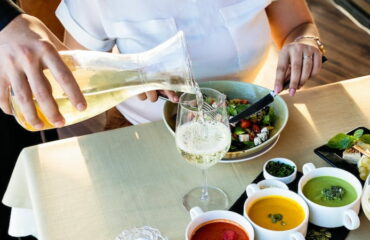
 by
by